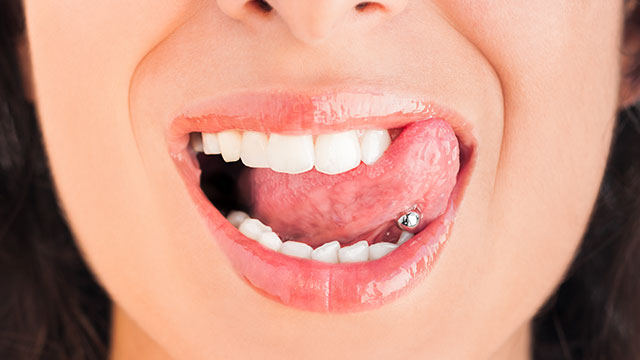-
-

BRUSHING & FLOSSING
How to BrushWhat Is the Right Way to Brush?
Proper brushing takes at least two minutes — that's right, 120 seconds!...

BRUSHING & FLOSSING
How To FlossWhat is the Right Way to Floss?
Proper flossing removes plaque and food particles in places where a toothbrush cannot easily reach... -
Science & Innovation
- Home
- Oral Health
- Is Milk Good For Your Teeth? | Colgate®


It can be tough to make good dietary choices for your dental health. Is milk good or bad for your teeth? Does milk cause tooth decay? Research says that milk and teeth are a great match, but the reasons why may surprise you. Here’s what you need to know about milk, dairy, and your teeth.
Milk and calcium
Not only are milk and dairy products delicious, they're also a valuable source of calcium. This essential mineral supports healthy nerve and muscle function and, of course, teeth and bones, where Better Health says the majority of our body's calcium is stored. They say that calcium needs vary throughout life, starting with a daily intake of 210mg calcium at birth and rising to 1300mg during adolescence. Depending on age and gender, adults need 1000-1300mg.
How dairy fights decay
How exactly do milk and dairy help our teeth? According to Better Health, milk products can protect against tooth decay by:
- Neutralising acidity in your mouth from consuming acidic or sugary foods/drinks.
- Stimulating saliva flow, which also neutralises acid and washes away bacteria and food debris.
- Reducing the formation of plaque, the sticky substance that can lead to cavities.
Remember that dairy products without added sugar are best and consuming dairy is just one part of a mouth-healthy lifestyle. Be sure to consume a balanced diet of vegetables, fruits, whole grains, and mineral-rich foods.
Getting more milk in your diet
While many foods and drinks contain calcium, most people find consuming milk and dairy to be the easiest way to meet the recommended daily amount. Even better? Your body easily absorbs the type of calcium found in milk and dairy.
If you’re not a massive fan of drinking big glasses of milk, don’t worry. There are plenty of other ways to meet your calcium needs. Fortunately, we can all find items we love to eat on this list of calcium-rich foods:
- Unsweetened yoghurt, plain or with fruit.
- Cheeses, including mozzarella, cheddar, and cottage.
- Meals containing buttermilk.
- Calcium-fortified soy milk.
Helpful tip: Fat-free and low-fat dairy products typically have the same calcium content.
Say no to soft drinks
Soft drinks can be tough on your teeth, eroding the protective enamel surface over time. This is essential to consider because enamel cannot be replaced once it's lost. According to the Rethink Sugary Drink campaign, soft drinks can also cause tooth decay, and sensitivity.
The lesson? If you love having a cold drink handy in the refrigerator, stock up on plain milk instead of sugary and acidic soft drinks.
Milk and oral care basics
Milk and dairy products are a fantastic way to enhance your dental health, but they aren’t a fix-all by themselves. A thorough and regular oral hygiene routine is also a must, including:
- Brushing your teeth for two minutes twice daily with a soft-bristled toothbrush and fluoride toothpaste.
- Flossing or cleaning between your teeth once a day.
- Using a fluoride mouth rinse or mouthwash to help remove debris and food matter.
Researchers and dental professionals agree that milk offers incredible benefits for your dental health. Now that you’re caught up on just how vital dairy products are for a healthy diet, let your beautiful smile be the ultimate proof of just how well they work.
Related Articles

You take your child to their dental appointment, expecting smiles all around and a clean bill of health.

A dry mouth spray may be good option if you need short-term relief of dry mouth. Learn how sprays work and what you can do for longer-term solutions, here.

This article is intended to promote understanding of and knowledge about general oral health topics. It is not intended to be a substitute for professional advice, diagnosis or treatment. Always seek the advice of your dentist or other qualified healthcare provider with any questions you may have regarding a medical condition or treatment.
Related Products

Helping dental professionals
More professionals across the world trust Colgate. Find resources, products, and information to give your patients a healthier future








